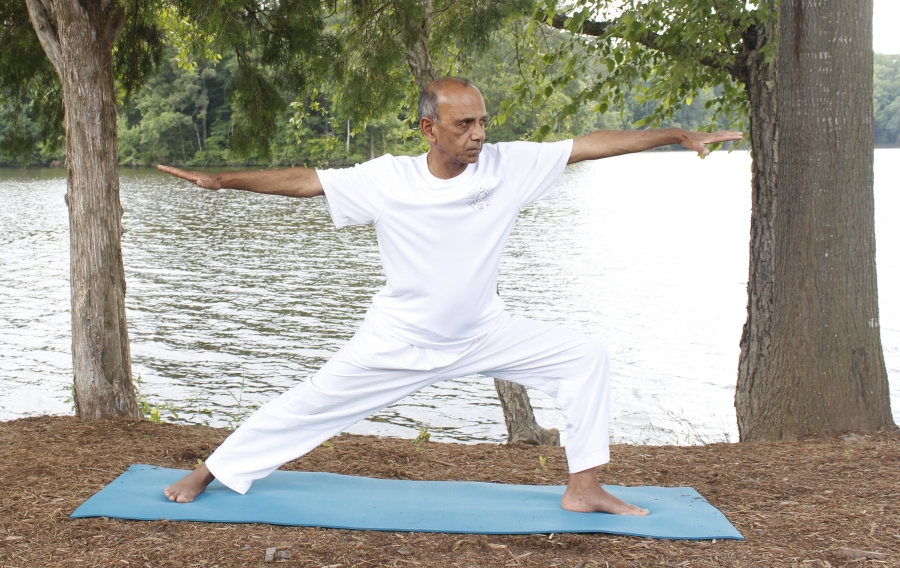My Teaching Philosophy
As stated in my mission statement, my objective in teaching yoga is to help my students develop their personality at all levels – physical, emotional, intellectual and spiritual. As yoga has gained in popularity, its original message has been watered down to make it more accessible to larger and more diverse groups of people. As such, for most practitioners , yoga involves simply practicing some physical stretching (asanas) and deriving benefits only at the physical level.
“Yoga is not about how good you ‘look’ in a pose but how good you ‘feel’ in the pose”
I am deeply influenced by and committed to following the philosophy and practice of yoga as expounded by Sage Patanjali in his Yoga Sutras. As per the Yoga Sutras, yoga is defined as the “control of the fluctuations of the mind-field”. To achieve this goal, he has given us the eight-fold path of yoga called Ashtanga Yoga. Physical postures (asana) which is what most people seem to imply when they talk about yoga is only one of these eight limbs. The objective of practicing asana and pranayama (breathing techniques) is to develop a body which is strong and flexible, and a mind which is free from worry and tension so that we can develop control over the mind through meditation.


Practice of yoga offers tremendous benefits at the physical and physiological levels. It is known to provide therapeutic benefits for a large number of common ailments – blood pressure, headaches, anxiety, stress management, heart problems and others. However, I emphasize that yoga is not a pill for quick relief from any given condition. Yoga must be developed as a life-style and the benefits begin to unfold over time. As I am not a doctor, I cannot specifically provide any guarantees for cure from specific ailments. All I can say is that yoga, for centuries, has been practiced with known benefits. Science is only playing catch-up with what the yogis have told us for millennia.
As many of you know, I am an independent yoga teacher, not associated with a yoga studio or a health club. I try my best to align my teaching schedule so more people can attend these classes. I offer most classes in the evening or in the morning.
I feel truly fortunate and blessed to have the opportunity to work with my students and offer them any help that I can in making them healthier and happier in pursuing their life’s objectives. I endeavor to keep the classes light-hearted and fun so we can all have an enjoyable experience. I am always open to feedback and suggestions.


